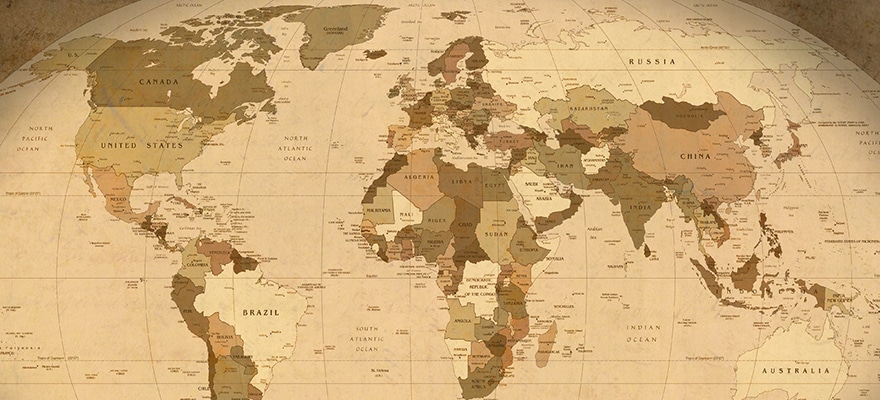This guest article was written by William Laraque who is the Managing Director of US-International Trade Services.
Epiphanies
We are bombarded constantly with the ever accelerating pace of technological innovation.
Join the industry leaders at the Finance Magnates London Summit, 14-15 November, 2016. Register here!
As part of this dizzying confluence of events, not a day goes by without the apostles of Blockchain , digitization of trade documents and the latest Fintech epiphany laying claim to a revolution in global trade and global trade finance.
In banking, Nick Lovegrove writes in the Harvard Business Review: "The permanent crisis in banking is an outgrowth of this, a man-made disaster created by individuals who have gotten completely carried away by the perceived value of specialist expertise. The damage from this myopic approach is not just reputational but also economic, given the critical role the financial system plays in enabling growth, investment, job creation, and wealth."
After studying such claims of epiphany and innovation in banking and global trade finance since the 1980s, I have drawn certain conclusions. The need for humility is the most salient of these conclusions.
Humility
I have watched nearly all of the presentations and interviews of Elon Musk, who is surely among the most innovative business leaders today. I was struck in the process by Musk's respectful and humble attitude. He states again and again his gratitude for the feedback from critics and contacts alike. He is informed by these critics and does not take offense at their views.
This process reminds me of Leibniz who conducted an extensive communication with an extensive diversity of persons and minds. In this process, one values feedback and suggestions while admitting that no one has a monopoly on ideas and epiphanies. As Neil deGrasse Tyson states, as the extent of our knowledge expands, so does the perimeter of our ignorance.
Trade, Epiphanies and Knowledge
Edwards Deming, whose little book on statistical quality control forever changed Japanese manufacturing, explained that one could not improve a process without having a profound understanding, without "deep knowledge" of these processes.
I find that numerous attempts are made to solve the 'digitization' or 'de-materialization' of trade without having the deep knowledge of trade required to sustainably achieve these improvements. The result is predictable.
Shortcuts result in record fines. A typical example is an e-commerce platform being fined for shipping Samsung Note 7s without heeding the extensive warnings about shipping products with lithium-ion batteries minus the necessary precautions.
There are 33 disciplines which attend the conduct of global trade and global trade finance. Ignoring any one of these hard-wires disaster.
e-commerce Platforms
A viable e-commerce platform intended to enable cross-border trade necessarily takes these many disciplines into consideration. Ignoring any of them is a formula for fines, disbarment or worse, imprisonment.
How is this conflation of capabilities to be achieved as part of a platform? The simple answer is by strategic alliances and collaboration. One example of this is Ant Financial. Ant Financial Services Group, the financial affiliate of Alibaba Group Holding Ltd., is using partnerships to build a global network of merchants that accept its payment services. (WSJ)
This guest article was written by William Laraque who is the Managing Director of US-International Trade Services.
Epiphanies
We are bombarded constantly with the ever accelerating pace of technological innovation.
Join the industry leaders at the Finance Magnates London Summit, 14-15 November, 2016. Register here!
As part of this dizzying confluence of events, not a day goes by without the apostles of Blockchain , digitization of trade documents and the latest Fintech epiphany laying claim to a revolution in global trade and global trade finance.
In banking, Nick Lovegrove writes in the Harvard Business Review: "The permanent crisis in banking is an outgrowth of this, a man-made disaster created by individuals who have gotten completely carried away by the perceived value of specialist expertise. The damage from this myopic approach is not just reputational but also economic, given the critical role the financial system plays in enabling growth, investment, job creation, and wealth."
After studying such claims of epiphany and innovation in banking and global trade finance since the 1980s, I have drawn certain conclusions. The need for humility is the most salient of these conclusions.
Humility
I have watched nearly all of the presentations and interviews of Elon Musk, who is surely among the most innovative business leaders today. I was struck in the process by Musk's respectful and humble attitude. He states again and again his gratitude for the feedback from critics and contacts alike. He is informed by these critics and does not take offense at their views.
This process reminds me of Leibniz who conducted an extensive communication with an extensive diversity of persons and minds. In this process, one values feedback and suggestions while admitting that no one has a monopoly on ideas and epiphanies. As Neil deGrasse Tyson states, as the extent of our knowledge expands, so does the perimeter of our ignorance.
Trade, Epiphanies and Knowledge
Edwards Deming, whose little book on statistical quality control forever changed Japanese manufacturing, explained that one could not improve a process without having a profound understanding, without "deep knowledge" of these processes.
I find that numerous attempts are made to solve the 'digitization' or 'de-materialization' of trade without having the deep knowledge of trade required to sustainably achieve these improvements. The result is predictable.
Shortcuts result in record fines. A typical example is an e-commerce platform being fined for shipping Samsung Note 7s without heeding the extensive warnings about shipping products with lithium-ion batteries minus the necessary precautions.
There are 33 disciplines which attend the conduct of global trade and global trade finance. Ignoring any one of these hard-wires disaster.
e-commerce Platforms
A viable e-commerce platform intended to enable cross-border trade necessarily takes these many disciplines into consideration. Ignoring any of them is a formula for fines, disbarment or worse, imprisonment.
How is this conflation of capabilities to be achieved as part of a platform? The simple answer is by strategic alliances and collaboration. One example of this is Ant Financial. Ant Financial Services Group, the financial affiliate of Alibaba Group Holding Ltd., is using partnerships to build a global network of merchants that accept its payment services. (WSJ)


















